
The Vice-Chancellor of Germany, officially the Deputy to the Federal Chancellor, is the second highest ranking German cabinet member. The chancellor is the head of government and, according to the constitution, gives this title of deputy to one of the federal ministers. It is custom that the title is given to a minister of the largest coalition partner, since 1966 typically the foreign minister. Since 2011, the minister for economic affairs has held the title most often.

The president of Nigeria, officially the president of the Federal Republic of Nigeria, is the head of state and head of government of the Federal Republic of Nigeria. The president directs the executive branch of the Federal Government and is the commander-in-chief of the Nigerian Armed Forces.

The Queensland Government is the state government of Queensland, Australia, a parliamentary constitutional monarchy. Government is formed by the party or coalition that has gained a majority in the state Legislative Assembly, with the governor officially appointmenting office-holders. The first government of Queensland was formed in 1859 when Queensland separated from New South Wales under the state constitution. Since federation in 1901, Queensland has been a state of Australia, with the Constitution of Australia regulating its relationship with the federal government.

The vice president of Nigeria is the second-highest official in the executive branch of the federal government of Nigeria, after the president of Nigeria, and ranks first in the presidential line of succession. Officially styled vice president of the Federal Republic of Nigeria, the vice president is directly elected together with the president to a four-year term of office.

The Senate is the upper chamber of Nigeria's bicameral legislature, the National Assembly. The National Assembly is the nation's legislature and has the power to make laws, as summarized in chapter one, section four of the 1999 Constitution of Nigeria. The lower chamber is the House of Representatives.

The President of the Hellenic Parliament is the presiding officer of the Parliament of Greece. The president's term coincides with the term of the assembly,and is chosen by a vote during the opening session, after each legislative election. Following is a list of speakers of the Hellenic Parliament or other national legislative bodies such as the Greek Senate, from the time of the Greek War of Independence till present. The official order of precedence ranks the speaker of the Hellenic Parliament in the 3rd position, after the President of the Republic and the Prime Minister.
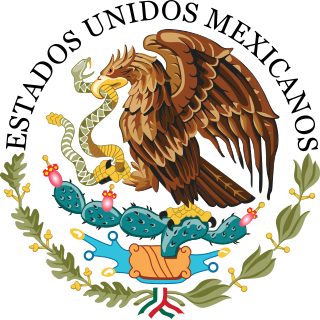
The Federal Government of Mexico is the national government of the United Mexican States, the central government established by its constitution to share sovereignty over the republic with the governments of the 31 individual Mexican states, and to represent such governments before international bodies such as the United Nations.
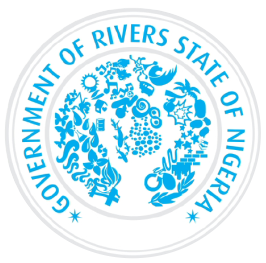
The Government of Rivers State consists of elected representatives and appointed officials responsible for the government of Rivers State, Nigeria. Rivers State has a population of about 5 million people, and is one of the 36 states that make up the Federal Republic of Nigeria. The state government is composed of the executive, legislative, and judicial branches, whose powers are vested by the Constitution in the House of Assembly, the Governor and the High Court. The judiciary operates independently of the executive and the legislature. At the local level, elected officials are in charge of local government areas.

The governor of Lagos State is the head of government of Lagos State in Nigeria. The governor leads the executive branch of the Lagos State Government. This position places its holder in leadership of the state with command authority over the state affairs. The Governor is frequently described to be the number one citizen of the state. Article II of the Constitution of Nigeria vests the executive power of the state in the governor and charges him with the execution of state law, alongside the responsibility of appointing state executive, diplomatic, regulatory, and judicial officers subject to the approval of the Assembly members.
The Governor of Rivers State is the Chief executive of the Rivers State government and is one of the governors of the thirty-six states of Nigeria. The Governor is supported by the Deputy Governor, both popularly elected for a term of four years. The Governor, as head of the executive branch, has the power to appoint commissioners responsible for each of the state's ministries, the heads of parastatals, judicial officers and the state-owned bodies with specific regulatory or administrative duties. They cannot be a member of the state's House of Assembly.
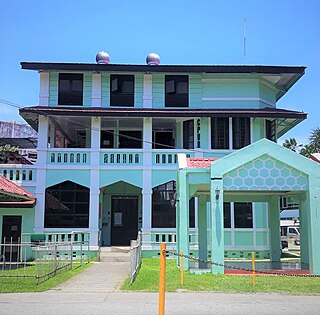
The Central Philippine University Republic (CPUR), often referred to as CPU Republic, is the student government of Central Philippine University in Iloilo City. Established in 1906 a year after Jaro Industrial School opened, it is the first and oldest student council in South East Asia. CPU Republic is modeled on the Federal government of the United States and consists of three branches: executive, legislative and judicial.
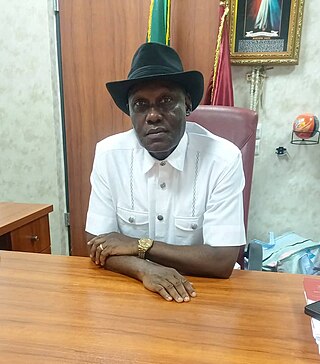
Clifford Ordia is a Nigerian engineer and politician who hails from Usugbenu Irrua in Esan Central local government area of Edo State. He served as a senator of the Federal Republic of Nigeria from 2015 to 2023, representing the people of Edo Central senatorial district, Edo State, in the Nigerian Senate. He is a member of the Peoples Democratic Party, PDP.
The Government of Ogun State consists of elected representatives and appointed officials responsible for the government of Ogun State, Nigeria. Ogun State has a population of about 2 million people, and is one of the 36 states that make up the Federal Republic of Nigeria. The state government is composed of the executive, legislative, and judicial branches, whose powers are vested by the Constitution in the Governor, the House of Assembly, and the High Court. The judiciary operates independently of the executive and the legislature. At the local level, elected officials are in charge of local government areas.
The governor of Imo State is an elective political position, one of the governors of the thirty-six states of Nigeria. The governor of Imo State is the chief executive officer of Imo state and its executive branch with the assistance of the deputy governor. Fourteen people have served as governor since Imo State was created in 1976: eight military governors, two military administrators and seven democratic governors. The current governor is Hope Uzodinma of the All Progressives Congress, in office since 15 January 2020.
The Deputy Governor of Imo State is the political running-mate of the governor. He/she serves as the second highest executive official after the governor. On 15 January 2024, Chinyere Ekomaru was sworn in as Deputy Governor of Imo State.
The Government of Imo State also called The Imo State Government consists of elected representatives and appointed officials responsible for the government of Imo State, Nigeria. Imo State has a population of over 4 to 5 million people, and is one of the 36 states that make up the Federal Republic of Nigeria. The state government is composed of the executive, legislative, and judicial branches, whose powers are vested by the Constitution in the House of Assembly, the Governor and the High Court. The judiciary operates independently of the executive and the legislature. At the local level, elected officials are in charge of local government areas.
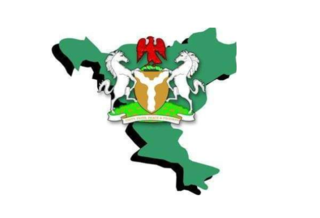
The deputy governor of Jigawa State is the second-highest officer in the executive branch of the government of Jigawa State, Nigeria, after the governor of Jigawa State, and ranks first in line of succession. The deputy governor is directly elected together with the governor to a four-year term of office.

The government of Edo State serves as the governing authority for Edo State, one of the 36 states within the Federal Republic of Nigeria. It comprises three branches of government: the executive branch led by the Governor of Edo State, the legislative branch represented by the Edo State House of Assembly, and the judicial branch, including the Judiciary of Edo State and the Courts of Edo State. The state government operates under the frameworks of the Constitution of Nigeria and the Constitution of Edo State, delineating the powers, duties, and functions of state organs and institutions. It also encourages direct participation from the electorate through mechanisms such as initiative, referendum, and ratification.














